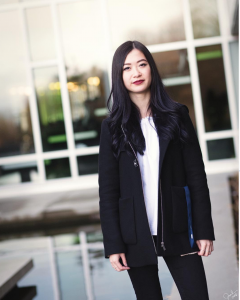
“I feel most Asian parents are not very good at communicating to their children. I can’t imagine that they had a fun childhood also experiencing that repression. I think it’s like a generational thing… a lot of the things embedded in me that I automatically think are not supposed to be like that.”
“Can you elaborate?”
“I guess… my instinct whenever I *feel* something toward my parents, just anything, is not to voice it because I wouldn’t want to A) put more burden on them, or B) have them react in a way that I don’t expect, so I end up feeling worse, uhm, or just… it’s in me to not talk about my feelings, because my parents have raised me that way, and they also don’t talk about their feelings to me, unless it’s like, anger, or like, disappointment.”
“Yeah—Anger is OK. Disappointment is OK.”
“But everything else is not! But it’s also funny, because they can express their anger and disappointment in you, but you can’t express the same way to them, because they’ll feel like it’s an attack. Which is what is disappointing to me.”
“That’s an interesting reflection, actually. It’s very one-sided. You’re not allowed to tell them how you feel, but they can dump on you.”
“Yeah, and they’ll be like, ‘that’s because I’m your mom! I’m supposed to have support.’ It’s sad how, for most of my friends, their friends know more about them than their own parents…”
“Were your parents supportive of you going into psychology?”
“Yeah, they’re luckily not the type of Asian parents that wanted me to be a doctor. … I was kind of in those special programs in high school, so I guess I’ve been conditioned to want to go to grad school. They did a very good job of embedding high standards of achievement in me without me realizing. But they never enforced it. It could have been a lot worse.”
